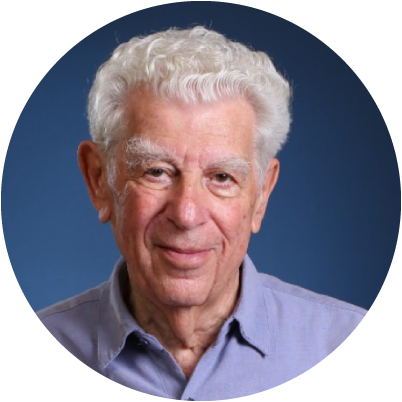
Rabbi Richard G. Hirsch was Honorary Life President of the World Union for Progressive Judaism, the international organization of the Reform movement with affiliates in over thirty countries, and headquarters in Jerusalem, Israel.
Rabbi Hirsch was an active leader in the Jewish Agency for Israel and the World Zionist Organization. He served as Chairman of the Zionist General Council. He served as Co-Chairman of the Jewish Agency’s Commission on the Former Soviet Union and Eastern Europe. He was elected President of the 33rd World Zionist Congress. He was elected an honorary life member of the JAFI Board of Governors.
Born in Cleveland, Ohio in 1926, Rabbi Hirsch graduated from the University of Cincinnati in 1947. From 1949-1950 he studied at the Hebrew University in Jerusalem and was ordained in 1951 at the Hebrew Union College – Jewish Institute of Religion, receiving the degree of Master of Hebrew Letters with honors.
From 1951-1953 Hirsch served Temple Emanuel, Chicago, Illinois, and from 1953-1956 Temple Emanuel, Denver, Colorado. From 1956-1961 he was Director of the Chicago Federation and Great Lakes Council of the Union of American Hebrew Congregations (Union for Reform Judaism).
Rabbi Hirsch was the Founding Director of the Reform movement’s Religious Action Center (RAC) in Washington, DC, which he served from 1962-1973. The RAC was renowned as the venue for the deliberations advocating the passage of the American civil rights legislation of the 1960’s with Rabbi Hirsch marching alongside and meeting with key figures in America’s social justice movement history.
In 1973 Rabbi Hirsch moved to Israel to become Executive Director of the World Union for Progressive Judaism.
He has been called the architect of Reform Zionism and the world-wide movement for Progressive Judaism. As the prime mover in affiliating Reform Judaism to the World Zionist Organization and the Jewish Agency for Israel, Rabbi Hirsch was also responsible for the establishment of Beit Shmuel and Merkaz Shimshon on the expanded campus of the Hebrew Union College in Jerusalem. In recognition of his efforts the Hirsch Theatre was named in honor of him and his wife.
In 2010, he was one of twelve Israelis invited to light a torch during Israel’s official Independence Day ceremonies, the first Reform rabbi to be so honored.
Rabbi Hirsch was a frequent contributor to various publications in English and Hebrew, and was the author of six books on the application of Judaism to contemporary social problems: Judaism and Cities in Crisis: There Shall be no Poor; The Way of the Upright; Thy Most Precious Gift; From the Hill to the Mount – a Reform Zionist Quest; and For The Sake of Zion – Reform Zionism: A Personal Mission.
In 2019, the World Union introduced the Rabbi Richard G. Hirsch Award of the World Union for Progressive Judaism, conferred on those who, like Rabbi Hirsch, have made exceptional contributions to social justice, Zionism, and Israeli and global Progressive Judaism. At the URJ Biennial in Chicago in 2019 the World Union granted the first Rabbi Richard G. Hirsch Award to Rabbis Naama Kelman and Levi Weiman-Kelman for their contributions to Reform Judaism in Israel and exemplary rabbinic leadership. Read more about the gala event here and watch the video with Rabbi Hirsch’s greetings.
Rabbi Hirsch’s name, teachings and actions are among the most historic and influential of Reform Judaism in the 20th century.
In 2021, the World Union invited Rabbi Hirsch to speak about the history of Reform Zionism and the role of the World Union in growing the global movement; we invite you to watch it here. An additional interview with Rabbi Hirsch from 2019 can be viewed here.
Rabbi Hirsh was married to Bella, z”l, who passed away in 2019. She was a constant and influential presence in the work of the World Union.
Bella’s influence on the growth of Progressive Judaism in the former Soviet Union was significant, and her presence graced significant WUPJ moments around the globe for over 40 years.
They were survived by a daughter, three sons and eleven grandchildren.
Yehi Zichro Baruch – May their memory be blessed.
